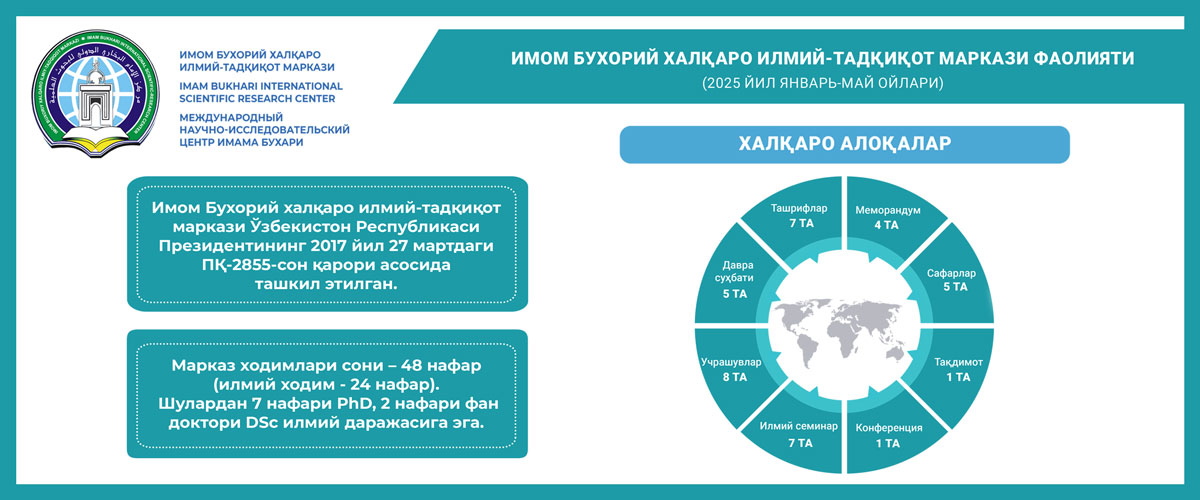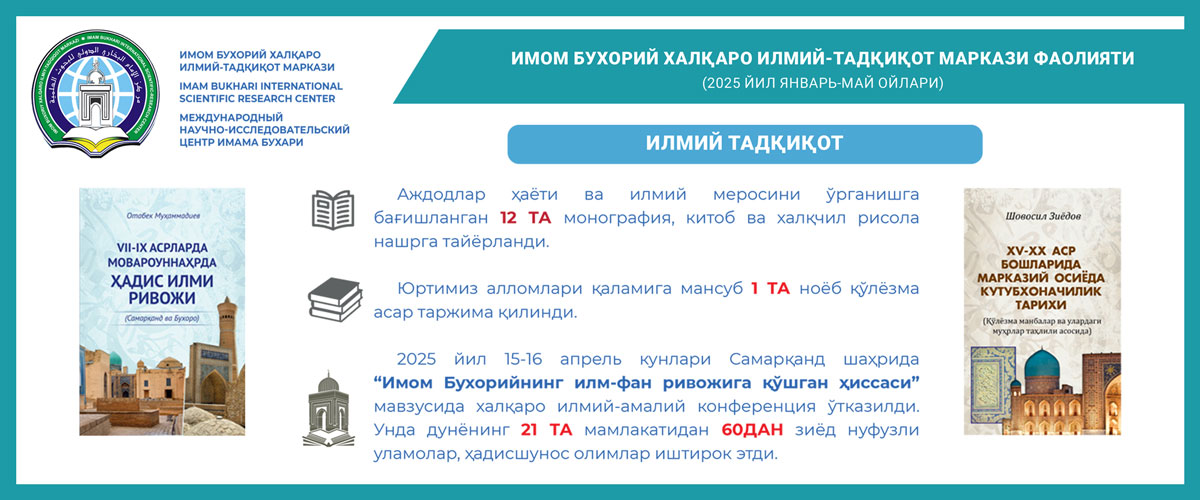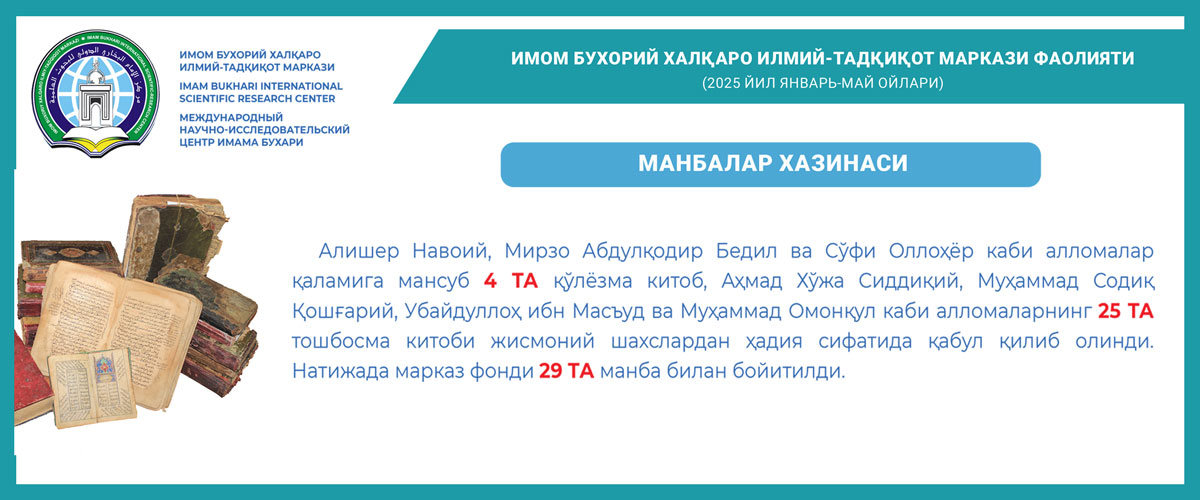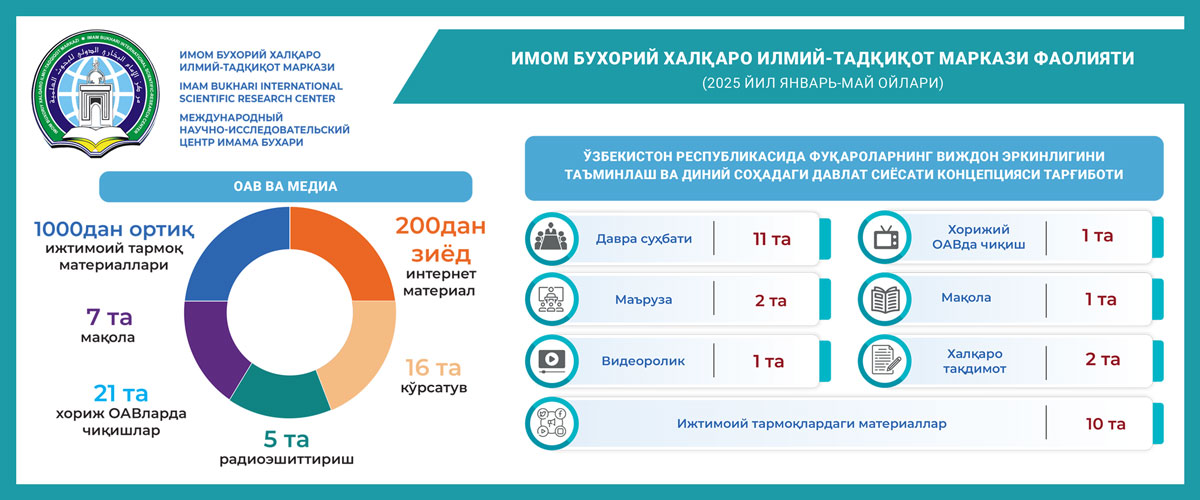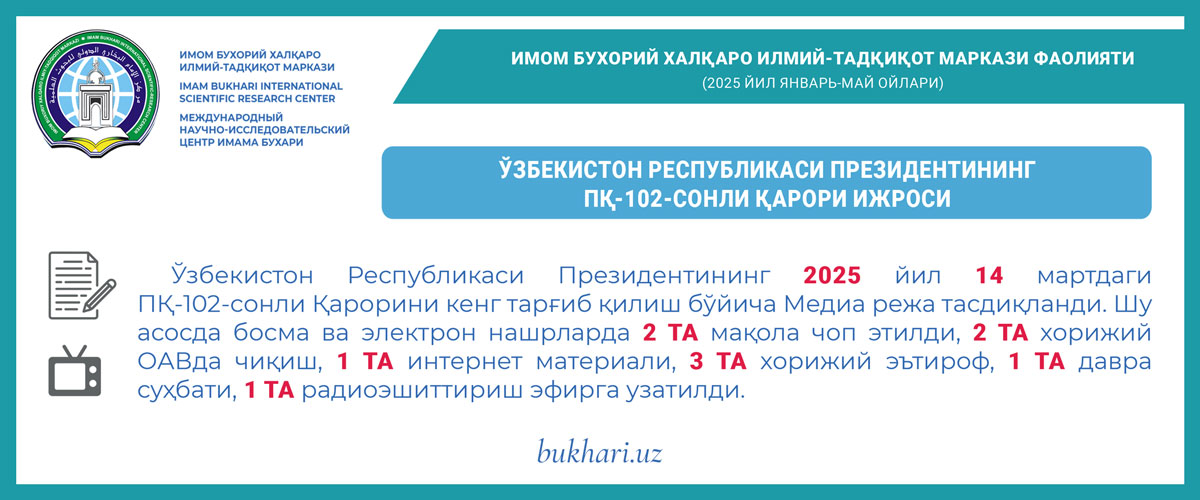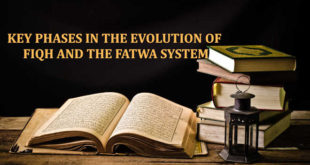These days, the theme of religious and issues connected with religious people remain one of the most pressing issues not only in Uzbekistan but also around the world. Unfortunately, as the problem of extremism and terrorism grows in the world, this issue is being repeatedly reconsidered.
Of course, the natural question arises as to what of the state religious policy should be in this situation.
It should be noted here, Development of the new edition of the Law of the Republic of Uzbekistan “On freedom of conscience and religious organizations”, and by public authorities in the community- the struggle against the alien ideas of extremists and terrorist organizations, and are being interpreted by some groups that the secularization of the state that is the policy of purposeful reduction of the role of religion, in the life of society and the state.
First, it is important to understand and correctly interpret the term. Secularism is the transition of public administration from a religious law or an important system of religion to a secular model of government.
An impartial view
Uzbekistan is a worldly state, in the substance 61 of the Constitution says: “Religious organizations and associations are separate from the state and are equal before the law. The state shall not interfere in the activities of religious associations”.
In this respect, the assertion that Uzbekistan is shifting from a religious system to a secular one and especially an atheistic one is unfounded.
So what is secularism? Secularism is not atheism, as some people mistakenly think. Secularism does not deny God and imon.
The policy of Uzbekistan in the religious sphere as a secular state is that the state does not consider any religion official and does not prefer one religion to another.
That is, the state does not allow the politicization of religion, but at the same time promotes the development of religious organizations and confessions, does not interfere in their internal affairs, and does not prevent believers from meeting their religious needs.
The government does not specify how religious believers should conduct their religious ceremonies, what they should do, and so on. All of this is within the competence of religious leaders. Government agencies monitor compliance with the law by all religious organizations.
The state acts as an impartial referee and respects the right of every individual to profess or not to practice any religion.
At the same time, religious organizations will not be allowed to interfere with the issues governed by the state’s laws and regulations.
For example, the government’s decision to comply with the rules of educational institutions or the ministry’s order is a normative act.
State authorities ensure that students and their parents are strictly adhered to by this decree and edict, regardless of their social group, ethnicity, or religious beliefs.
Observance of norms established by law or other normative legal acts is obligatory for all.
 Imom Buxoriy xalqaro ilmiy-tadqiqot markazi bukhari.uz
Imom Buxoriy xalqaro ilmiy-tadqiqot markazi bukhari.uz
